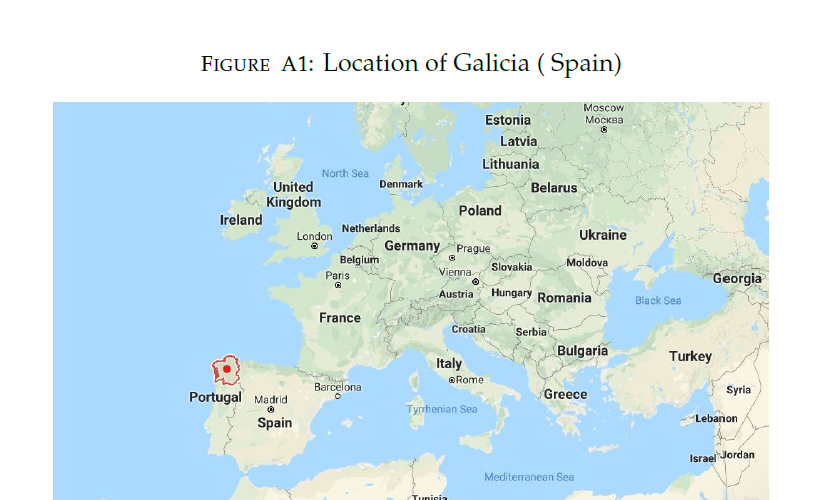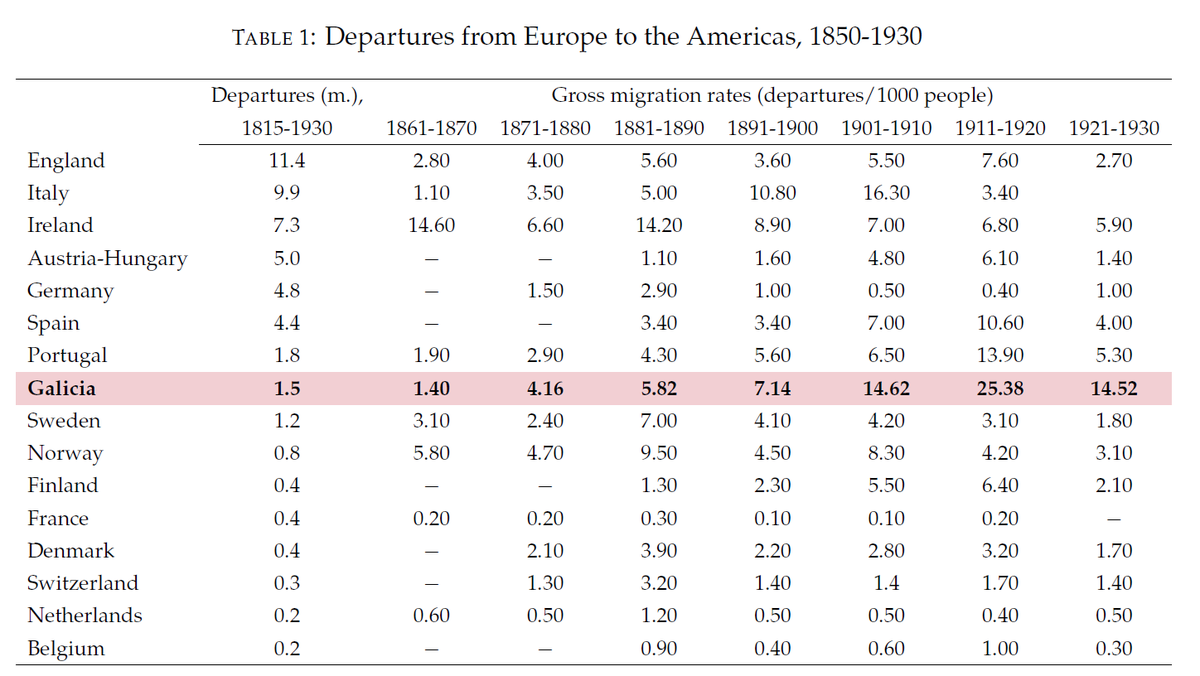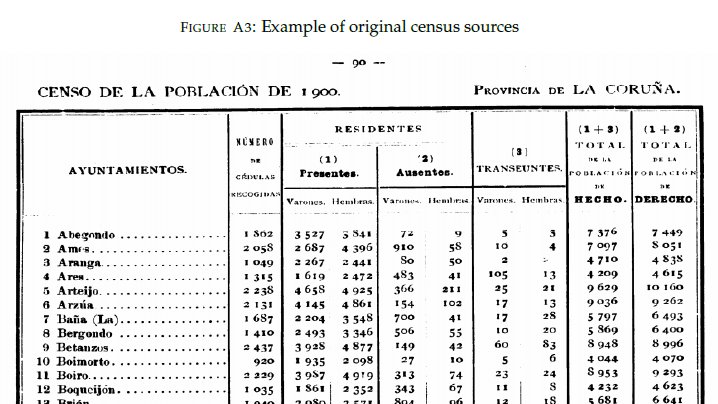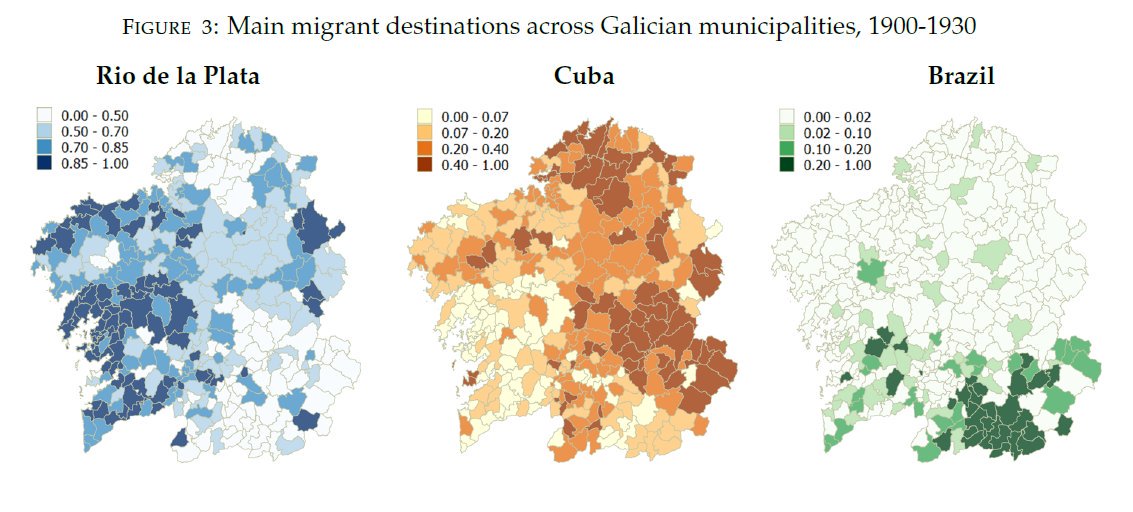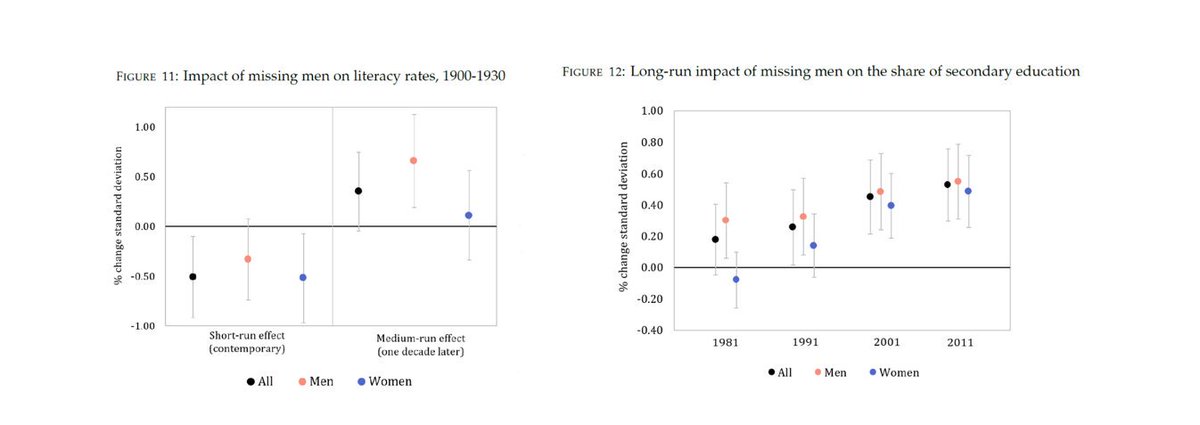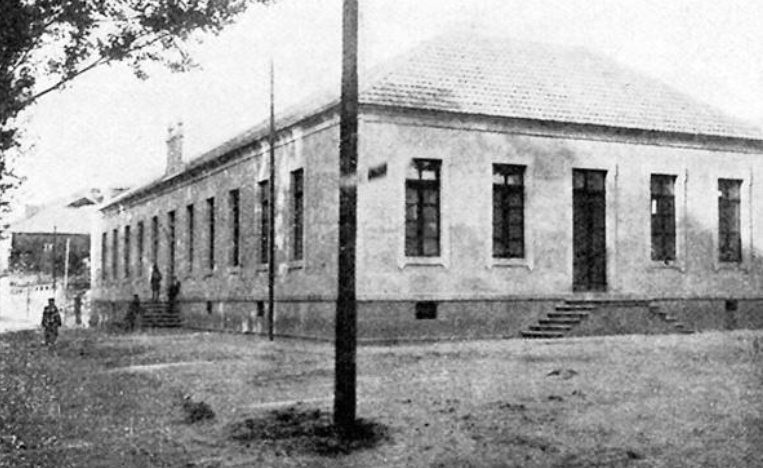Hi #EconTwitter, I am glad to share with you my JMP:
"Mass Emigration and Human Capital over a Century: Evidence from the Galician Diaspora".
It is the result of two years learning about my ancestors.
Find the paper and more info about me at:
https://sites.google.com/view/martinfernandezsanchez
1/13">https://sites.google.com/view/mart...
"Mass Emigration and Human Capital over a Century: Evidence from the Galician Diaspora".
It is the result of two years learning about my ancestors.
Find the paper and more info about me at:
https://sites.google.com/view/martinfernandezsanchez
1/13">https://sites.google.com/view/mart...
2) You may have heard of the Age of Mass Migration (1850-1930), a period in which >40M Europeans moved to the Americas. Recent research has shown that this mass migration contributed to long-run economic development and human capital accumulation at destination
3) But… What were the long-term consequences for the countries of origin? The truth is that we still do not know much, the reason being that we often lack detailed historical data that allow us to zoom in
4) In my paper, I examine the impact of mass emigration on human capital accumulation over a century in the context of Galicia (i.e., my region). In 1900-1930, >1.1M people emigrated from this Spanish region to Latin America (i.e., 58% of 1900& #39;s pop). This was huge!
5) I digitized data from different historical sources and constructed a database of all Galician municipalities from 1860 until the present (e.g., censuses, embark lists, migrants& #39; associations...). So yes, many visits to archives and >2 months copying data by hand...
6) For identification, I exploit the fact that pioneer emigration (1840-1860) was largely driven by rainfall shocks. While these pioneer migrant networks remained dormant for decades, they became important in the mass emigration era.
7) To predict the timing of departures, I rely on the economic growth in the relevant destinations, a measure that I construct relying on information of migrants’ destinations at the local level
8) What do I find? When a municipality experienced emigration, literacy rates fell in the short-run... No surprise, as most migrants were young and educated. However, one decade later, the impact becomes positive. And… these gains in human capital persist over 80 years!
9) What is going on? Well, emigration seems to have incentivized young people to acquire education [arrows pointing up]. At the same time, around 65% of emigrants eventually came back. But there is MUCH more...
10) Galician migrants fostered education at origin also by investing in schools and changing social norms. They created associations that collected money to build new schools in their hometowns. Here is the "migrant school" where my parents& #39; generation studied
11) I constructed a database of >400 associations and >300 migrants& #39; schools and using data by cohorts, I found that these new schools had a significant impact increasing educational attainment
12) Galician migrants put a lot of emphasis on the importance of education, diffusing these norms through their letters, associations, etc. Using survey data, I find that in municipalities that experienced more emigration, individuals value education and effort significantly more
13) I still have many things to do in this project, but this is it for now. I hope that the story of Galicia helps better understanding other migration episodes, and especially, the ways in which migrants can contribute to the development of their communities of origin

 Read on Twitter
Read on Twitter
